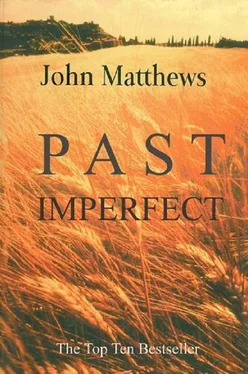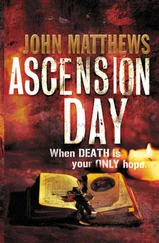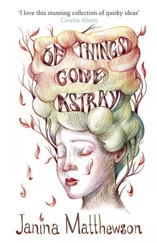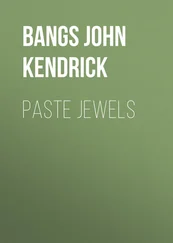John Matthews - Past Imperfect
Здесь есть возможность читать онлайн «John Matthews - Past Imperfect» весь текст электронной книги совершенно бесплатно (целиком полную версию без сокращений). В некоторых случаях можно слушать аудио, скачать через торрент в формате fb2 и присутствует краткое содержание. Жанр: Триллер, на английском языке. Описание произведения, (предисловие) а так же отзывы посетителей доступны на портале библиотеки ЛибКат.
- Название:Past Imperfect
- Автор:
- Жанр:
- Год:неизвестен
- ISBN:нет данных
- Рейтинг книги:4 / 5. Голосов: 1
-
Избранное:Добавить в избранное
- Отзывы:
-
Ваша оценка:
- 80
- 1
- 2
- 3
- 4
- 5
Past Imperfect: краткое содержание, описание и аннотация
Предлагаем к чтению аннотацию, описание, краткое содержание или предисловие (зависит от того, что написал сам автор книги «Past Imperfect»). Если вы не нашли необходимую информацию о книге — напишите в комментариях, мы постараемся отыскать её.
Past Imperfect — читать онлайн бесплатно полную книгу (весь текст) целиком
Ниже представлен текст книги, разбитый по страницам. Система сохранения места последней прочитанной страницы, позволяет с удобством читать онлайн бесплатно книгу «Past Imperfect», без необходимости каждый раз заново искать на чём Вы остановились. Поставьте закладку, и сможете в любой момент перейти на страницу, на которой закончили чтение.
Интервал:
Закладка:
Nothing in his past had prepared him for this. All those years stuck in back radio and communications rooms both in the Legion and the Marseille gendarmerie, he'd had so little 'people' contact. Between the code and call signature manuals, the gun range and procedural guides for arrest, filing and administration, there had been no special training on consoling grieving relatives. How should he phrase it? How would he even start?
On the edge of town, Dominic passed the tannery and leather workshops tucked into a hillside rock outcrop where the road was cut away. Dyes and acids for stripping and treating the skins were heavy in the air; piquant sauce for the smells of death.
Dominic's eyes watered slightly; he wasn't sure whether they were sensitive with emotions or it was a combination of the fumes and the wind rush on the bike. Eighty yards past, he was clear of the fumes and the smells of the fields took over: ripening vines, lemons, almonds and olives, grass and wheat burnished almost white by the sun. He breathed deeply, but still his eyes watered.
Images flashed before him — the dark brown blood patches against the wheat, the boy being carried to the ambulance, the gendarmes tapping through the field with their canes, Monique Rosselot opening the door to him on that first visit, and the single candle in her daily bedside vigil of begging and praying to God to spare her son. How could he possibly bring her this news? The well of his emotions finally ebbed, a gentle catharsis washing through him without warning, his body trembling against the vibrations of the bike. He bit at his lip and swallowed back the sobs at the back of his throat; no sound emanated, his steadily watering eyes and his trembling body the only release valves.
His reaction confused him. He'd witnessed murder before, battle hardened by his years in Marseille. Was it the age of the boy, or Monique Rosselot's strongly displayed devotion for her son bringing him closer to her emotions, too close: her saddened face in half shadow reflected in the glass against the candle light, tears streaming down her cheeks as he told her that her son was dead. Dead! 'No! Oh God, no!' As he uttered the words breathlessly, what lay ahead of him suddenly seemed impossibly daunting: one simple sentence, destroying Monique Rosselot's life, tearing down any remaining vestige of hope. His grip on the throttle relaxed, the bike slowing slightly, apprehension gripping him full force. His conflict was absolute: he knew he had to go. He cared too much to risk her hearing casually from someone else passing. But he dreaded having to utter the words himself.
And so he switched off part of his mind driving the last few miles. Cared for her? He hardly knew her. Pushed the thoughts back as he turned his Solex bike into the Rosselot's driveway, parked, dismounted. Words shaped in his mind, almost on the edge of his lips, all of them sounding so inept, inadequate. The messenger? Was that what worried him, being the messenger? Always being remembered as the man who brought the news that her son had died.
As he approached the door, he noticed the boy's bike still against the garage wall, waiting in expectation. His mouth was dry. He took a last deep breath to calm his nerves as he reached for the door knocker and flipped it down twice.
But it did little good. His nerves built to a crescendo, blood pounding through his head as the door opened and she stood there, her young daughter Clarisse in the shadows behind.
He fumbled, the words seeming to catch in his throat, but from the quickly distraught look that came back from her, she seemed to already half know, perhaps from his expression and awkwardness, and he only managed to say, 'I'm sorry, I have bad news. I wanted to make sure I caught you before you headed for the hospital…' before she started pleading.
'No, no, no, no, no … No !' A repetitive and steadily rising mantra to hopefully drive the inevitable away, her eyes imploring him as she slowly collapsed to her knees and, her body finally giving way to convulsive sobbing, she let out a single wailing cry.
The cry, painful and desperate, pierced the still morning air, echoing from the walls of the small courtyard and rising up the gentle slope of the fields beyond. Jean-Luc Rosselot had been working in the west field out of sight of the courtyard for over an hour, digging to find the leak in an irrigation pipe. He didn't see or hear the Solex approaching; the cry was the first thing he heard. He dropped his spade and started running the fifty yards that would bring him in sight of the courtyard. Halfway, another wailing cry arose; a gap, then another.
And already he feared what was the cause before he'd thrashed his way through the last of the dried grass in the almond orchard and the courtyard came into view. It was like a frozen tableau: the gendarme trying to stand proud with his wife on her knees before him, one hand clutching out and almost touching his ankles. As another cry of anguish drifted up across the field, he saw the gendarme reach out towards her shoulder as if to re-assure, but the hand hovered just above without connecting.
Each of them stood alone, grief unshared; though Jean-Luc felt even more distanced and awkward, looking on. He tried not to accept what the tableau told him, force it from his mind in search of other explanations; but in the end the imagery was too strong, left nothing to interpretation. His son was dead.
His first instinct was to rush towards his wife, comfort her — but after a few paces he stopped. His legs felt weak and he was strangely dizzy, the field seeming to tilt slowly away from him, the light oddly dim in hues of dull grey. And suddenly it seemed ridiculous for him to bound down the hillside, waving, even if his legs still had the strength to carry him, and so he resigned himself and slowly sank down, gave way to the buckle in his knees until he was sitting.
They hadn't seen him; they were faced away and he was still too distant. And so he watched from a distance through the grey haze, through eyes stinging with tears, watched his life and all he loved, all that he had prayed these past days for God to save, slowly slip away with the tilt of the grey field into nothingness.
The death intensified the investigation and the mood in Taragnon and the surrounding villages. Questions and speculation peppered much of village conversation. Part nervous reaction, there were few other escape valves. New snippets of information about possible suspects and excitement at an impending apprehension replaced their normal daily routines and pleasures. In a village where local gossip and drama was a large part of the daily fare, this indeed was a lavish banquet. But in the lulls, moods were dark and sullen, silent. It was either feast or famine.
The first main change in the case came in a call from Pierre Bouteille notifying Poullain that he had passed over his file to Alexandre Perrimond, Aix Chief Prosecutor. 'The main reason is workload. With this now a murder investigation, I'm afraid I wouldn't be able to devote the time it deserves. I've brought Perrimond up to date on everything. No doubt he'll make contact soon.'
The morning after, 'La Provencal' carried the news in a three column band at the bottom of its front page, carrying over onto page two. It was the most complete story they'd carried yet of the Rosselot case, going over the initial assault, its impact on the small village of Taragnon, and police progress. The police were quoted as having a few possible suspects and how they hoped to 'conclude the investigation and press charges within the week.' Poullain had spent almost twenty minutes on the phone the previous afternoon with the reporter. The end of the article went back over other notable child disappearances and murders in Provence over the past decade, mostly from the Marseille and Nice area, underlining the rareness of such incidents in inland villages.
Читать дальшеИнтервал:
Закладка:
Похожие книги на «Past Imperfect»
Представляем Вашему вниманию похожие книги на «Past Imperfect» списком для выбора. Мы отобрали схожую по названию и смыслу литературу в надежде предоставить читателям больше вариантов отыскать новые, интересные, ещё непрочитанные произведения.
Обсуждение, отзывы о книге «Past Imperfect» и просто собственные мнения читателей. Оставьте ваши комментарии, напишите, что Вы думаете о произведении, его смысле или главных героях. Укажите что конкретно понравилось, а что нет, и почему Вы так считаете.












